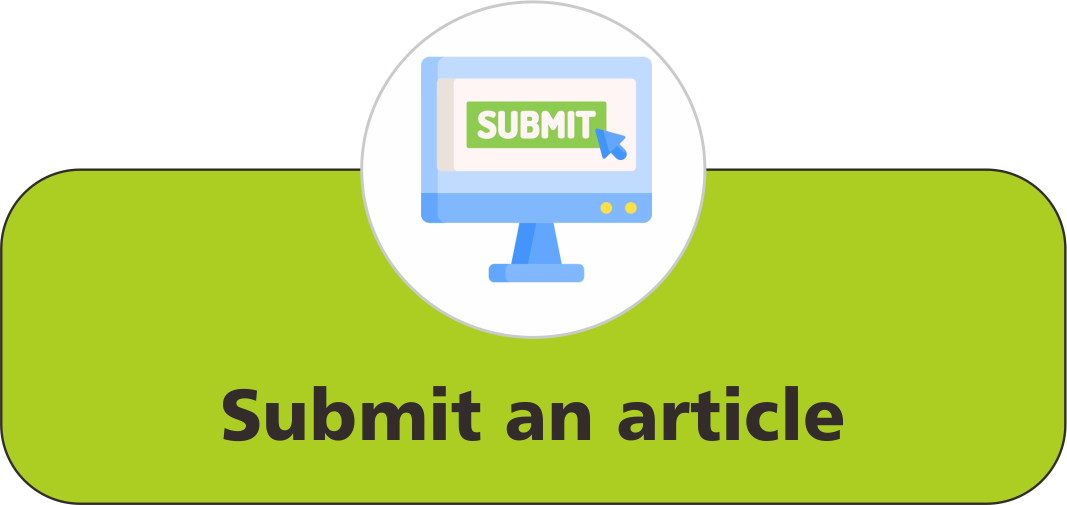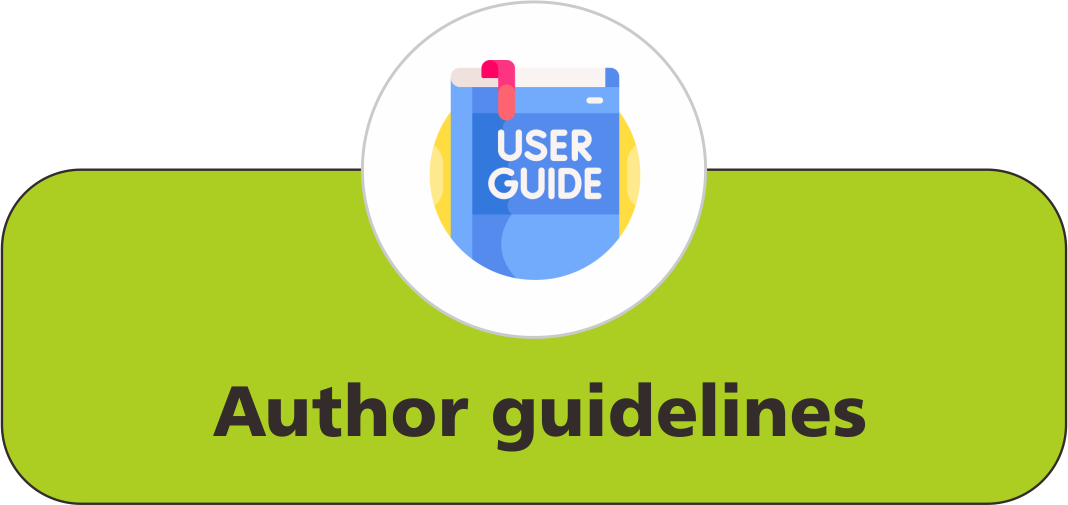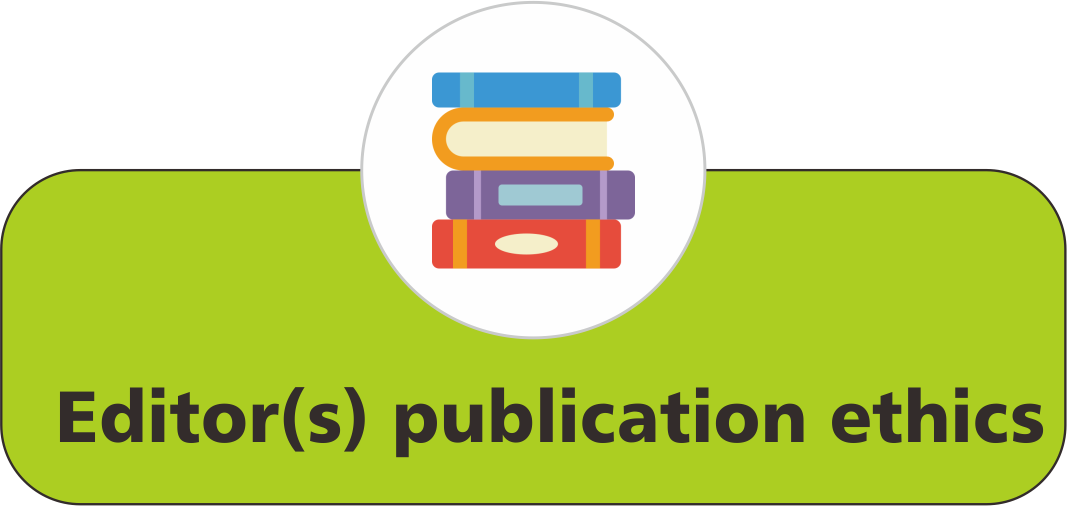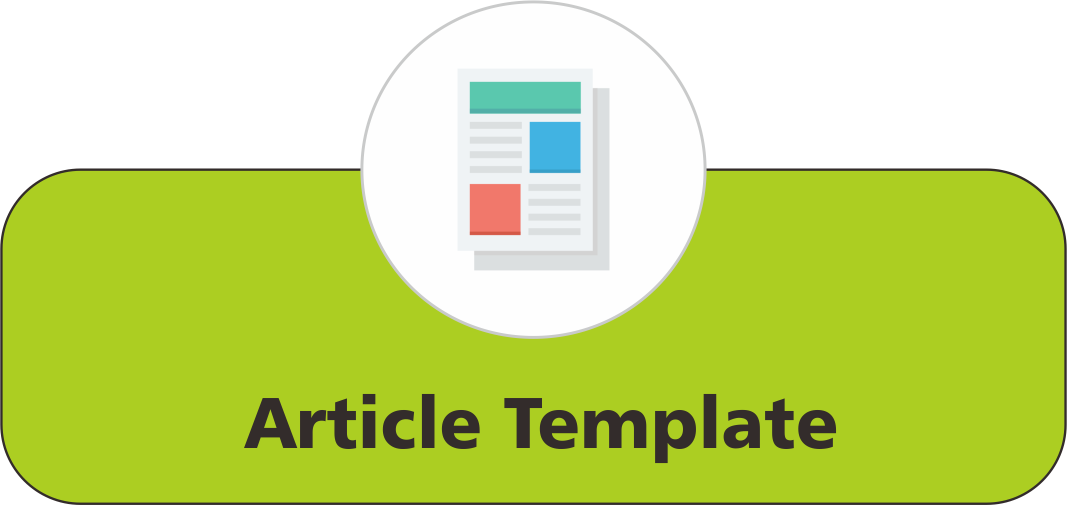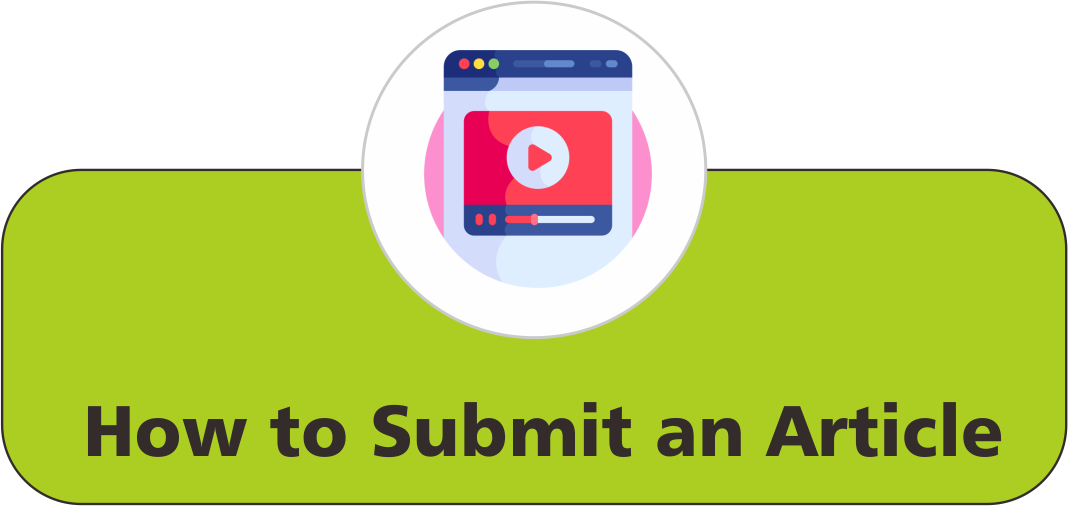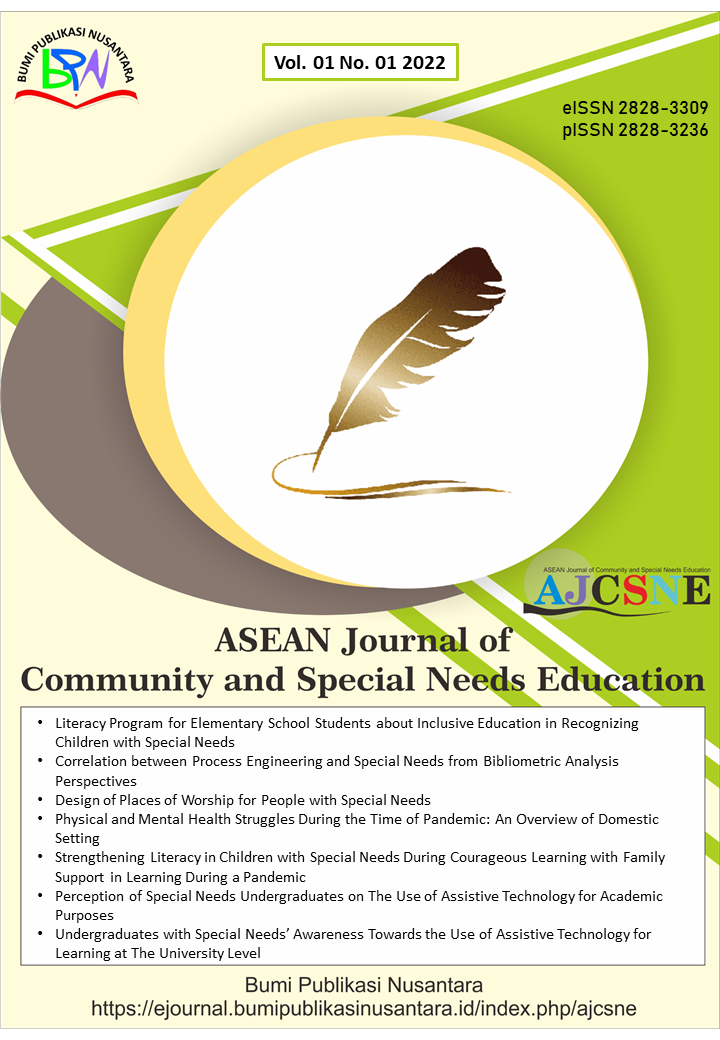Individualized Assessment Strategies for Students with Special Needs in Inclusive Classrooms
 ), Mamadiyorova Sevinch Bakhromjon(2), Akbarova Ugiloy Akhmadali(3),
), Mamadiyorova Sevinch Bakhromjon(2), Akbarova Ugiloy Akhmadali(3),
(1) Chirchik State Pedagogical University
(2) Chirchik State Pedagogical University
(3) Chirchik State Pedagogical University
 Corresponding Author
Corresponding Author
Abstract
This research investigates the knowledge, skills, and competencies acquired by students with special needs in an inclusive classroom setting. The study aims to assess the level of development of each student’s abilities and their understanding of subject-specific concepts, providing a foundation for implementing individualized teaching strategies. With the legal framework for inclusive education in Uzbekistan established in 2020, the research highlights the gap in fully developed assessment criteria and procedures for students with special needs. The objectives of the study include diagnosing the initial knowledge and competencies of students, developing subject-specific assessment criteria, examining teacher feedback on these criteria, and analyzing the outcomes of assessment tasks. The findings emphasize the need for personalized assessment methods tailored to the unique abilities of students with special needs, ensuring that assessments are both effective and inclusive. This research contributes to enhancing the educational process by supporting individualized, adaptable, and equitable evaluation strategies.
Keywords
References
Adesokan, A., and Bojuwoye, O. (2023). Teachers’ perceived barriers to inclusive education. ASEAN Journal of Community and Special Needs Education, 2(2), 91-96.
Al Shaban Radi, H.M., and Hanafi, Z. (2024). Managing visually impaired students: Factors that support and inhibit inclusive programs in elementary. Indonesian Journal of Community and Special Needs Education, 4(1), 19-28.
Alimi, A.E., Babalola, E.O., Aladesusi, G.A., Issa, A.I., and Omolafe, E.V. (2022). Availability and utilization of assistive technology for learning among students with special needs in Ilorin, Kwara State. Indonesian Journal of Community and Special Needs Education, 2(1), 17-28.
Amelia, N., Abdullah, A.G., and Mulyadi, Y. (2019). Meta-analysis of student performance assessment using fuzzy logic. Indonesian Journal of Science and Technology, 4(1), 74-88.
Azizah, N., Prasetyo, A.C., Dini, N., Wulandari, V., and Kruesa, M. (2022). Social inclusive education project (SIEP) as a community for handling children with special needs in rural areas. Indonesian Journal of Community and Special Needs Education, 2(2), 89-98.
Bakinde, S.T. (2022). Physical fitness status of male, and female non-athlete in Nigeria. Indonesian Journal of Educational Research and Technology, 2(2), 123-132.
Bourke, R., and Mentis, M. (2013). Self-assessment as a process for inclusion. International Journal of Inclusive Education, 17(8), 854-867.
Calixtro Jr., V.L. (2021). Health status and job performance of physical education instructors in higher education institutions. Indonesian Journal of Educational Research and Technology, 1(2), 71-76.
Chan, W. K., Zhang, L., and Oon, E. (2023). Classroom assessment that tailor instruction and direct learning: A validation study. International Journal of Assessment Tools in Education, 10(2), 376-394.
Egbedeyi, T.F., and Babalola, A.E. (2023). Availability and challenges of inclusive lower primary education schools. Indonesian Journal of Community and Special Needs Education, 3(2), 93-102.
Escomes, E.L., and Morbo, E.A. (2021). Factors affecting distance learning of the physical education students of Sultan Kudarat State University, Mindanao, Philippines. Indonesian Journal of Educational Research and Technology, 1(3), 87-94.
Faddillah, R.N., Nandiyanto, A.B.D., and Bilad, M.R. (2022) Literacy program for elementary school students about inclusive education in recognizing children with special needs. ASEAN Journal of Community and Special Needs Education, 1(1), 1-8.
Fernández-López, Á., Rodríguez-Fórtiz, M. J., Rodríguez-Almendros, M. L., and Martínez-Segura, M. J. (2013). Mobile learning technology based on iOS devices to support students with special education needs. Computers and Education, 61, 77-90.
Frey, J. R. (2019). Assessment for special education: Diagnosis and placement. The ANNALS of the American Academy of Political and Social Science, 683(1), 149-161.
Gillies, R. M. (2014). The role of assessment in informing interventions for students with special education needs. International Journal of Disability, Development and Education, 61(1), 1-5.
Glushchenko, V.V. (2025). Formation of the methodology of the project-activity game in inclusive higher education. Indonesian Journal of Multidiciplinary Research, 5(1), 53-58.
Irawan, A.R. (2021). Handwashing ability assessment for students with intellectual barriers. Indonesian Journal of Community and Special Needs Education, 1(1), 9-10.
Khamitovna, K.K. (2022). Practical work on the transition of the educational process in higher educational institutions to the stage-stage credit-module system and their results. ASEAN Journal of Educational Research and Technology, 1(2), 147-154.
Lebeer, J., Birta-Szekely, N., Demeter, K., Bohács, K., Candeias, A. A., Sønnesyn, G., and Dawson, L. (2012). Re-assessing the current assessment practice of children with special education needs in Europe. School Psychology International, 33(1), 69-92.
Ledesma, G.L., Lampedario, K.D., Pequierda, J.D., and Calixtro, V.L. (2021). Online learning and academic performance of bachelor of physical education students. Indonesian Journal of Educational Research and Technology, 1(3), 135-140.
Manosa, C., Pineda, C.K., Namora, J.J., and Daga-as, C. (2022). Health status of bachelor of physical education degree students amidst the Covid-19 pandemic. Indonesian Journal of Multidiciplinary Research, 2(2), 373-376.
Maryanti, R. (2021). Assessment of mathematical abilities of students with intellectual disabilities during the covid-19 pandemic. Indonesian Journal of Community and Special Needs Education, 1(2), 47-52.
Molina Roldán, S., Marauri, J., Aubert, A., and Flecha, R. (2021). How inclusive interactive learning environments benefit students without special needs. Frontiers in psychology, 12, 661427.
Morbo, E.A. (2021). Instructional materials and alternative teaching practices in physical education. Indonesian Journal of Educational Research and Technology, 1(2), 67-70.
Musayaroh, S., Asmiati, N., Utami, Y.T., Mulia, D., Sidik, S.A., Abadi, R.F., Pratama, T.Y., Maslahah, S., and Pramudyo, A.S. (2023). A digital accessibility and inclusive design-based e-module in higher education: Does it work in a classroom with a deaf student?. ASEAN Journal of Community and Special Needs Education, 2(1), 55-60.
Nandi, N., and Dede, M. (2022). Urban heat island assessment using remote sensing data in West Java, Indonesia: From literature review to experiments and analyses. Indonesian Journal of Science and Technology, 7(1), 105-116.
Rahmat, A. (2021). Standards for dimensions of space and environment in buildings for people with special needs (i.e.Wheelchairs, crutches, canes for the visually impaired). Indonesian Journal of Community and Special Needs Education, 1(1), 19-24.
Rizqita, A.J., Sunardi, S., and Bela, M.R.W.A.T. (2024). Development of traluli program of family-resourced early intervention for multiple disability and visual impairment (MDVI) children with fine motor impairment in inclusive school. Indonesian Journal of Community and Special Needs Education, 4(1), 65-74.
Sabbahi, R., Azzaoui, K., and Hammouti, B. (2021). An assessment of the efficacy of pheromone traps in managing the red palm weevil. Indonesian Journal of Science and Technology, 6(2), 371-384.
Tzivinikou, S., and Papoutsaki, K. (2016). Studying teaching methods, strategies and best practices for young children with special educational needs. Early Child Development and Care, 186(6), 971-980.
Yang, W., Chookhampaeng, C., and Chano, J. (2024). Spatial visualization ability assessment for analyzing differences and exploring influencing factors: Literature review with bibliometrics and experiment. Indonesian Journal of Science and Technology, 9(1), 191-224.
Article Metrics
Abstract View : 473 times
: 473 times Download : 349 times
Download : 349 times
Refbacks
- There are currently no refbacks.
Copyright (c) 2025 Bumi Publikasi Nusantara

This work is licensed under a Creative Commons Attribution-ShareAlike 4.0 International License.

